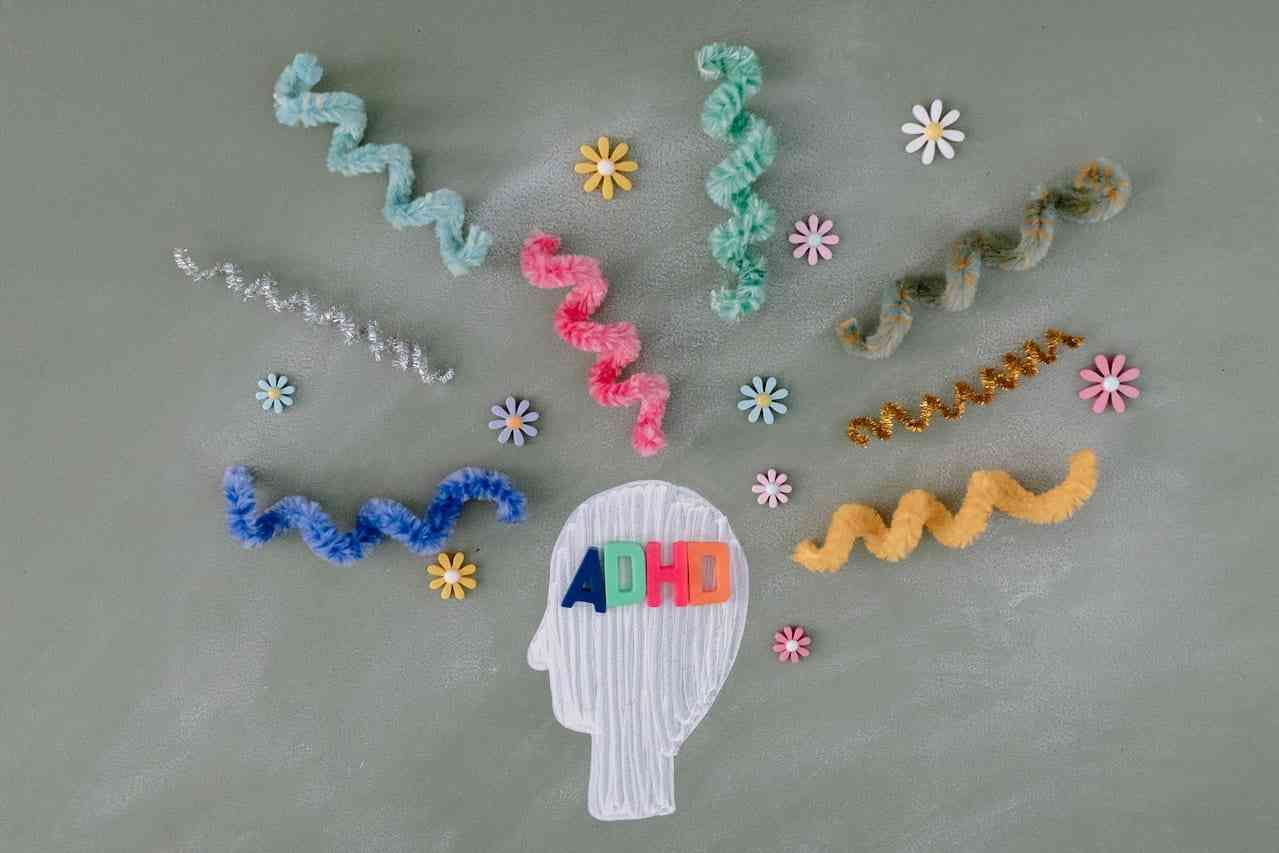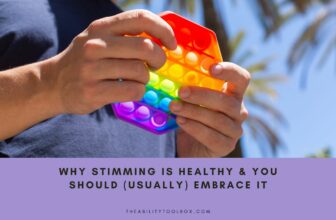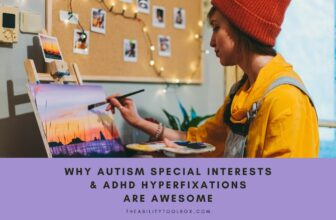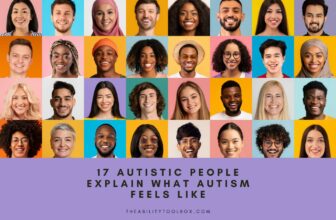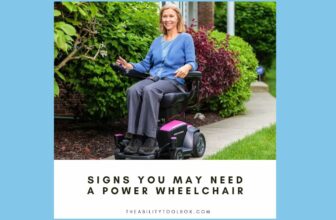On Monday 26th September, 2022, I received an adult ADHD diagnosis. For the first time in my life, things started to make sense as to why I function the way I do.
I felt confident, validated by a psychiatrist, that the diagnosis of adult ADHD reflected the collection of niggling daily indications and struggles that continued to prod away at me, and signify I was finding life a different kind of beast from how I perceived those closest to me. An observation that only seemed to become clearer the older I got and the more responsibilities, decisions, and “life markers” I found increasingly harder to consider and act on.
Around the world, the number of people with adult ADHD is suggested to sit around 2.8%, a 2016 study reported. Further, the rate of adult ADHD diagnosis is reported to be increasing, with a 2019 US study finding diagnosis in adults is rising four times faster than it is in children.
As an Amazon associate, we earn from qualifying purchases.
Is it ADHD?
After seeing a new doctor, a psychiatrist, for the first time and talking to him about why I was there and what I was experiencing, he thought ADHD appeared as a likely diagnosis. Two years prior, another psychiatrist had suggested ADHD and/or autism may be what I was experiencing. At that time, I felt so overwhelmed, confused, and unsure of how to navigate it that I didn't know what to do.
In that first meeting in the summer, I spoke about struggling to cope with day-to-day life, work, and relationships. I wondered how others manage. Getting enough sleep, eating well, responding to messages, and trying to work prove hard enough, let alone cooking, cleaning, opening post, paying bills, and washing clothes.
I told him I don't feel I'm very good at making decisions and cannot solve problems. When faced with such choices, I get distressed and overwhelmed, resulting in spiraling thoughts and depression. I'll often withdraw and isolate myself and be unable to return calls or speak to friends.
I talked about how I can get obsessive with work and am always busy and on the go. I try to manage an overloaded schedule and fit in multiple projects at once. It’s like I’m powerless to control it and cannot stop. I find it hard to rest and relax. It’s like I have so much energy that I don’t think I need sufficient sleep and rest, but then crash, and friends encourage me to slow down. I often lose time and the perception of time. I get bored easily.
Prompted by questions from the doctor, these were the parts of me I recognized.
After our discussions and completing the World Health Organization (WHO) ADHD self-rating scale assessment, I scored 6/6 for Part A and scored 12/12 for Part B. Full marks. I was told I met the criteria for severe Adult ADHD and the subtype of combined hyperactive and inattentive ADHD, indicating I have symptoms relating to both hyperactivity and inattentiveness.
Getting an adult ADHD diagnosis
The day I got the news I have ADHD, the first stark feeling I could pinpoint was relief. It had a name. Everything I'd been feeling and experiencing wasn't just me being utterly useless and devoid of developing new life skills and tackling what ‘simple' things that everyone around me seemingly could — engulfing myself in negative self-talk like this daily. It was the result of my brain functioning differently, me not knowing, and my ADHD being left untreated.
My relief was elevated by the patchy and complex route it’s been to getting the diagnosis of ADHD. Clinical psychologist Thomas Brown and nurse practitioner Ryan Kennedy recently wrote an article in ADDitude about when a mood disorder can look like ADHD, and the necessity to differentiate conditions to accurately diagnose people and provide a helpful treatment plan.
Despite the increasing number of adults diagnosed with ADHD, there's a belief among the scientific community that adult ADHD remains underdiagnosed, a 2014 study details, as referenced by the global ADHD magazine ADDitude. Adults with ADHD are more likely to visit a psychiatric clinic for disorders other than ADHD, and the ADHD symptoms they present are often mistaken for other comorbid conditions.
I have first-hand experience of this, having received a diagnosis of bipolar affective disorder in 2010, which, following my recent assessments, the doctor believes was given in error. I do, however, have borderline personality disorder, a previous diagnosis that was reconfirmed at the same time as receiving my ADHD diagnosis.
So, I have ADHD. Now what?
As the initial relief began to settle, I became disheartened and confused. How have I got here? If my brain feels like it houses a permanently-on washing machine operating at an ever-rapid speed, how am I supposed to stop it so I can understand more about it? Paralyzed by a lack of clarity that appears like a fog, how can I solve problems and make decisions? How do I live in a way that validates my ADHD and leads to a more fulfilling, happy life?
Since learning I have ADHD, the sense of empowerment has not fully left, it pulsates somewhere. But I've had to repeatedly remind myself of it and push my mind to the long-term fulfillment and understanding I hope and believe deep-down acceptance will create.
I say this because learning I have ADHD has not been without its frustrations, tears, and disbelief. The six-week post-ADHD diagnosis chapter has been a whirlwind of relief, reassurance, elevation, grief, and confusion. Not to mention the emotions and sensations attached to starting ADHD medication, an embarkation I was reluctant to take.
I know I need and deserve to find personal ways to manage my life. But where, seriously, to start? My attention span crashes and burns, or I become so hyper-focused that I forget to drink, eat, move, or go to the loo until I'm in physical pain. I can only sustain that level of intense interest for a short, sharp burst, and then wham, it disappears again. Now that I've got diagnosed with ADHD, what next?
Stubborn, I've tried not to beat myself up when I've had a thought, conversation, or taken an action that I don't feel helps me move forward. I'm trying to take it moment by moment and be kind to myself.
Though I don’t have the answers yet, I’ve promised myself I won’t reject the knowledge that I, too, like so many of us, have neurodivergence. This time, I won't bury it away in an unlocatable part of myself, only to resurrect it in several years' time when I feel enough motivation and energy to tackle it once more. I was exhausted from doing that. I want to give myself the respect and love to learn about it, reach out for support, and accept it as part of who I am.
Shifting sense of acceptance after an adult ADHD diagnosis
Fast-forward to my next doctor's appointment for a medication review of the prescription for Elvanse I'd decided to try almost four weeks ago, and I really needed to cling to that promise I’d made. I needed to dig deep to not abandon the awareness that I have ADHD and my commitment to look after myself.
The medication I chose came with some flexibility. I could take it for five days a week and choose which two days to go without. I started on 30 mg for two weeks and then increased it to 50 mg. Great I thought, the day I got the diagnosis and left with my prescription in hand. I'm a self-employed journalist and actor, and I’m continuing my studies at drama school. I didn't want to dull my creativity and not be as “on.” It’s a big part of what gives me joy and helps me tap into my creative and adventurous spirit. Parts of me I didn't want to lose.
My medication review saw me walk into the doctor’s office trying to hold back tears, with only four hours of sleep for most of the week and one meal a day propelling me there with little energy. Coupled with a sense that the positives of the calming, concentrated, and focused brain I'd got when I started the medication had been replaced by the uncontrollable impulses to agree to more work, pitch for even more, and seek out new novelties at 5:30 a.m. had me frazzled and fed up.
I was questioning the treatment pathway of medication, even whether the diagnosis of ADHD was correct. Yet despite this feeling, I'd not come off the pills for the two days I knew I could — the reason I chose them. I felt worse not being on them, my tiredness stopped me in my tracks; my emotional distress, sadness, and anxiety increased; and my brain was louder.
That was five days ago. And since then, I feel better. I managed to sleep for eight hours solid last night, which helped me make a plan for today. It contains flexibility but lets me progress with what I need to do and avoid the painful impact of procrastination and overwhelm that embattle me and throw me off course.
I’m trying my hardest to avoid my impulsivity and novelty-seeking ways in favor of working out everything that I’ve already committed to. Prioritizing it, breaking it into smaller chunks, and tackling it, one task or 15-minute block at a time. It's exhausting. Things take longer than I anticipated. My brain needs breaks, but I won't let it take them. But, despite the fight going on up there, I’m sticking to my promise to stay aware and engaged in this process of understanding myself and trying to implement new ways to live.
Acceptance to me has always been fleeting. I've felt unworthy, or overwhelmed by what that even meant. I was busy, both physically and mentally, unable to ever press pause long enough to consider options and give any decision the time and weight it needed. Now, I'm learning this is a part of who I am, and ADHD provides some answers. Since getting the diagnosis, I've not given myself as much grace as I would a friend, and that's disrupting my acceptance and ownership of it.
Yet, in those moments when I can feel calm over chaos, I can hold onto the positives and explore what living with ADHD means.
Tools I've found helpful since receiving my adult ADHD diagnosis
I’m trying to understand more about ADHD, at a pace I can manage, and how it affects me. Feeling I’m in control and have a say gives me a sense of empowerment and hope.
As I resist authority but want someone to make decisions for me (the irony is not lost here), perhaps the biggest self-adjustment is to explore my thoughts, feelings, and behaviors. Hold a non-avoidable mirror up to them. Ask hard questions. Reflect. Ask those around me whom I love and trust for their insights. And then identify those tools in a growing toolbox of advocates and research in ADHD that best match me and my life.
Aside from starting medication, I’ve begun to slowly engage with tools and activities that I find helpful. In case this is useful, here are some I’ve found supportive since receiving my ADHD diagnosis:
Resources for Adults Newly Diagnosed with ADHD
When I first learned I have ADHD, I was signposted to the Royal College of Psychiatrists page on ADHD in adults. It details what ADHD is, its symptoms, and treatment options.
I also began following some Instagram accounts to learn more about ADHD in easy and manageable ways. I currently follow @adhd_girls, @adhd_understood, and @weareunderdiagnosed. So far, I've just smiled as I've spotted their posts, feeling accepted and reassured that information is there to help me as I learn about ADHD.
I'm finding ADHD-specific magazines such as ADDitude helpful to dip into when I can to learn more about ADHD, its diagnosis in adults, treatments, and resources. VeryWell Mind provides information, too, including symptoms, adult diagnosis, and living with ADHD.
CHADD (Children and Adults with ADHD) and its magazine, Attention, also signpost resources and provide information on understanding ADHD and accessing advocacy information, publications, training, and events.
Another writer here on The Ability Toolbox has shared her adult ADHD diagnosis story which you may find helpful.
Books for Adults Recently Diagnosed with ADHD
I've started reading about ADHD. I've learned a helpful and easy-to-remember acronym to learn more and understand the symptoms of ADHD, named after the book of the same name, Fast Minds: How to Thrive If You Have ADHD (or Think You Might).
What I find useful in reading this book is the handy acronym I now know, which I'm using to educate myself and share with those closest to me. In case others would find this helpful, I've put this below:
Forgetfulness
Achieving below potential
Stuck in a rut
Time challenges
Motivational challenges
Impulsivity
Novelty-seeking
Distracted
Scattered
Next up on my reading list is the book, Delivered to Distraction, which my doctor has recommended to help me understand what ADHD is.
More Adult ADHD Books
Even more books for your reading list!
Support and Coaching for People Who Just Received an ADHD Diagnosis
I believe becoming part of a community of other adults with ADHD will help me move forward in a kind and accepting way.
CHADD has online communities for adults with ADHD and also parents and caregivers. UKAAN, the UK Adult ADHD Network, provides information on support groups to join. It also has resources on the latest news, research, guidelines, and interviews.
Accessing coaches that specialize in ADHD is another avenue I'm looking to explore. ADHD coaches and AADD-UK provide information on available and certified coaches and tips for finding a coach.
How others can help someone with a new ADHD diagnosis
One of the hardest things I've found is how to eloquently explain what ADHD is and how it feels for me. For loved ones, I’d say listen, without judgment. Ask questions in a supportive, loving, and curious way. Ask how you can help and, if you can, express how you can support.
I've been embarrassed, dismissive, or self-deprecating in the past about the day-to-day tasks I struggle with, putting it down to my quirky self. Now I'm trying to open up more about it. Doing so with a kind circle of people I feel safe with and supported by has been key to me feeling I can accept and tackle the news that I have ADHD.
After an adult ADHD diagnosis: where to go from here
I'm also pursuing the likely possibility, according to my doctor, that I have both ADHD and autism. Navigating what these neurodivergent conditions are, and how they overlap and differ for me, are the next steps on my path to living a more fulfilling and less distressing life. Right now, it feels like a case of one step forward and two steps back, but I hold onto the hope that with self-compassion and curiosity comes acceptance and the ability to thrive.
More ADHD & Neurodiversity Resources in The Ability Toolbox
- ADHD Merch: T-Shirts, Pins & Stickers for Proud Neurodivergents
- So You’ve Just Received an Adult ADHD Diagnosis. Now What?
- 15 Sensory Toys for Adults With Autism, ADHD, and Anxiety
- Beautiful Stim & Fidget Jewelry for Adults with Anxiety, Autism, & ADHD
- Cuddly Weighted Stuffed Animals for Kids and Adults to Hug

